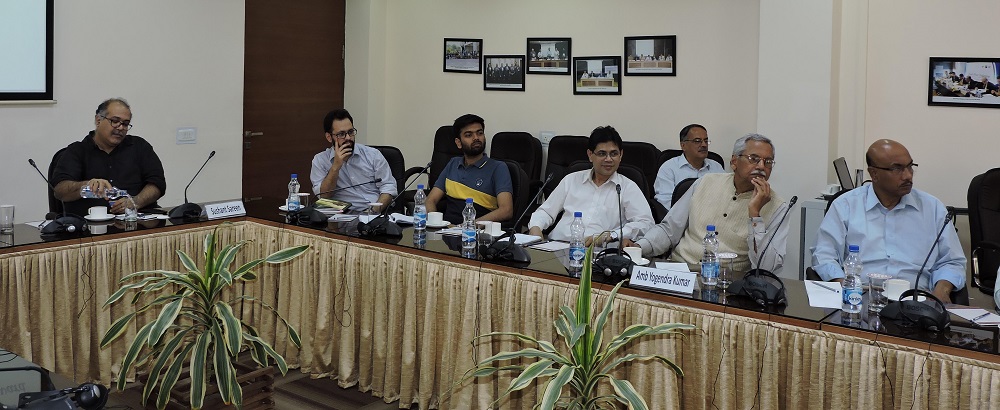On Mar 10th, 2018, Members of the Vivekananda International Foundation (VIF) faculty had an interactive session with Dr James M. Dorsey, Senior Fellow, S. Rajaratnam School of International Studies (RSIS), discussing together major conflicts in West Asia/Middle East and exploring the way forward. As an award winning war correspondent writing for some of the world’s most reputed newspapers such as The Wall Street Journal, The New York Times, and the Financial Times, Dorsey has had loads of experience in dealing with ethnic and religious conflicts across the globe, including Afghanistan, the Middle East and the North Africa, among other places.

According to Dr. Dorsey, complexities of the West Asian region are largely due to it layout. It is a region infested with inter-state rivalries where interests of the main protagonists both coincide and exacerbate the crisis. He also argued that West Asia’s crisis cannot be fully fathomed unless we take into account first the political transitions that countries in the region presently are going through from autocracy and monarchy to democracy. The Middle East and North Africa together is an arena where struggles for political control - protests and resistance, self-respect and gender rights, among other things - are being played out all at once. Dorsey also surmised that revolts taking place against repressive and corrupt governments are also indicative of the fact that the region is fundamentally moving towards reforms. Repression, however, is the name of game in North Africa and Middle East, Dr. Dorsey underscored.

The Middle East phenomenon, widely described as ‘Arab Spring’, erupted first way back in 2011 in Tunisia, and has since led to toppling of four governments. Dr. Dorsey argued that political transitions usually last for a decade or even quarter of a century. The transition in Tunisia was successful to some extent, whereas countries like Libya, Yemen and Syria have had to pay a heavy price, seemingly torn apart as they are by war and sectarian conflicts. The countries neighbouring the region ostensibly are also waiting to explode. Protests in countries like Algeria, Morocco and Sudan presently are confined to specific sectors. Nonetheless, these countries are also being hurtled towards chaos and violence. Rather than talking about ‘Arab Winter’, the legacy of ‘Arab Spring’ continues as revolts have not gone away.
The interactive session was highly useful in understanding the dynamics of conflicts in a region of great strategic significance for the whole world. Dr. Dorsey foretold that the Middle East and North Africa region is poised for another decade of volatility, uncertainty and bloodshed. The region may be the part of the world where resistance to change will prove to be most adamant with consequences far beyond its borders.





